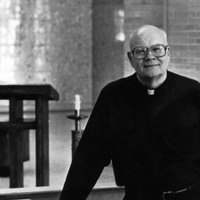Tribulation Times

Pope Paul VI issued Humanae Vitae on 25 July 1968

THE CATHOLIC THING: Denial of Communion Awakens Conscience by Fr. Gerald E. Murray
ANALYSIS: Recent Proposals for the Pastoral Care of the Divorced and Remarried: A Theological Assessment

Christ and the Woman Taken in Adultery by Pieter Bruegel the Elder, 1565
CHIESA: REFLECTIONS ON THE PASTORAL CARE OF THE FAMILY AND OF MARRIAGE by Ludmila Grygiel
[…] Chesterton said that we do not want a Church that will move with the world, but a Church that will move the world. Paraphrasing his words, we could say that families today, those in crisis and those that are happy, do not need pastoral care suited for the world, but pastoral care suited for He who knows what the heart of man desires.
I see the evangelical paradigm of this pastoral care in the dialogue of Jesus with the Samaritan woman, from which emerge all the elements that characterize the current situation of difficulties both of spouses and of priests involved in pastoral care.
Christ agrees to speak with a woman who is living in sin. Christ is not capable of hating, he is capable only of loving, and therefore he does not condemn the Samaritan woman but reawakens the original desire of her heart, which is obfuscated by the experiences of a disordered life. He forgives her only after the woman has confessed that she does not have a husband.
In this way the Gospel passage recalls that God does not make a gift of his mercy to one who does not ask for it, and that recognition of sin and the desire for conversion are the rule of mercy. Mercy is never a gift offered to someone who does not want it, it is not a product on sale because it is not in demand. Pastoral care requires a profound and convinced adherence of pastors to the truth of the sacrament.
In the private diary of John Paul II, we find this note written in 1981, the third year of his pontificate: “Lack of confidence in the family is the first cause of the crisis of the family.” One could add that lack of confidence in the family on the part of pastors is among the main causes of the crisis of pastoral care for the family. This cannot ignore the difficulties, but must not dwell upon them and admit discouragement and defeat. It must not conform to the casuistry of the modern Pharisees. It must welcome Samaritan women not to hide the truth about their behavior, but to lead them to conversion. Christians today are in a situation like the one in which Jesus found himself, when in spite of the hardness of heart of his contemporaries he re-proposed a model of marriage as God had wanted it from the beginning.
I get the impression that we Christians talk too much about failed marriages, and too little about faithful marriages, we talk too much about the crisis of the family and too little about the fact that the community of marriage and the family assures man not only earthly happiness but also that of eternity, and is the place in which the laity’s vocation to holiness is realized.
This also leaves aside the fact that, thanks to the presence of God, the community of marriage and the family is not limited to the temporal, but is open to the supertemporal, because each of the spouses is destined to eternal life and is called to live in eternity in the presence of God, who has created both of them and has wanted them to be united, sealing this union himself with the sacrament.
The Desert Fathers: sayings of the Early Christian Monks: Discretion
82. A hermit said, 'If someone lives in a place but does not harvest the crops there, the place will drive that person out for not having done the work of that place.'
Prayer request? Send an email to: PrayerRequest3@aol.com
October 10, 2014
(Rev 22:12-13) Behold, I come quickly: and my reward is with me, to render to every, man according to his works. I am Alpha and Omega, the First and the Last, the Beginning and the End.
(Rev 22:12-13) Behold, I come quickly: and my reward is with me, to render to every, man according to his works. I am Alpha and Omega, the First and the Last, the Beginning and the End.

Pope Paul VI issued Humanae Vitae on 25 July 1968
LIFESITE EDITORIAL: ‘Very
cold, dark winter’ for Catholic Church unless Synod addresses failure
since 1968 to preach sexual teachings - Humanae Vitae preacher

THE CATHOLIC THING: Denial of Communion Awakens Conscience by Fr. Gerald E. Murray
ANALYSIS: Recent Proposals for the Pastoral Care of the Divorced and Remarried: A Theological Assessment

Christ and the Woman Taken in Adultery by Pieter Bruegel the Elder, 1565
CHIESA: REFLECTIONS ON THE PASTORAL CARE OF THE FAMILY AND OF MARRIAGE by Ludmila Grygiel
[…] Chesterton said that we do not want a Church that will move with the world, but a Church that will move the world. Paraphrasing his words, we could say that families today, those in crisis and those that are happy, do not need pastoral care suited for the world, but pastoral care suited for He who knows what the heart of man desires.
I see the evangelical paradigm of this pastoral care in the dialogue of Jesus with the Samaritan woman, from which emerge all the elements that characterize the current situation of difficulties both of spouses and of priests involved in pastoral care.
Christ agrees to speak with a woman who is living in sin. Christ is not capable of hating, he is capable only of loving, and therefore he does not condemn the Samaritan woman but reawakens the original desire of her heart, which is obfuscated by the experiences of a disordered life. He forgives her only after the woman has confessed that she does not have a husband.
In this way the Gospel passage recalls that God does not make a gift of his mercy to one who does not ask for it, and that recognition of sin and the desire for conversion are the rule of mercy. Mercy is never a gift offered to someone who does not want it, it is not a product on sale because it is not in demand. Pastoral care requires a profound and convinced adherence of pastors to the truth of the sacrament.
In the private diary of John Paul II, we find this note written in 1981, the third year of his pontificate: “Lack of confidence in the family is the first cause of the crisis of the family.” One could add that lack of confidence in the family on the part of pastors is among the main causes of the crisis of pastoral care for the family. This cannot ignore the difficulties, but must not dwell upon them and admit discouragement and defeat. It must not conform to the casuistry of the modern Pharisees. It must welcome Samaritan women not to hide the truth about their behavior, but to lead them to conversion. Christians today are in a situation like the one in which Jesus found himself, when in spite of the hardness of heart of his contemporaries he re-proposed a model of marriage as God had wanted it from the beginning.
I get the impression that we Christians talk too much about failed marriages, and too little about faithful marriages, we talk too much about the crisis of the family and too little about the fact that the community of marriage and the family assures man not only earthly happiness but also that of eternity, and is the place in which the laity’s vocation to holiness is realized.
This also leaves aside the fact that, thanks to the presence of God, the community of marriage and the family is not limited to the temporal, but is open to the supertemporal, because each of the spouses is destined to eternal life and is called to live in eternity in the presence of God, who has created both of them and has wanted them to be united, sealing this union himself with the sacrament.
The Desert Fathers: sayings of the Early Christian Monks: Discretion
82. A hermit said, 'If someone lives in a place but does not harvest the crops there, the place will drive that person out for not having done the work of that place.'
Prayer request? Send an email to: PrayerRequest3@aol.com
This month's archive can be found at: http://www.
